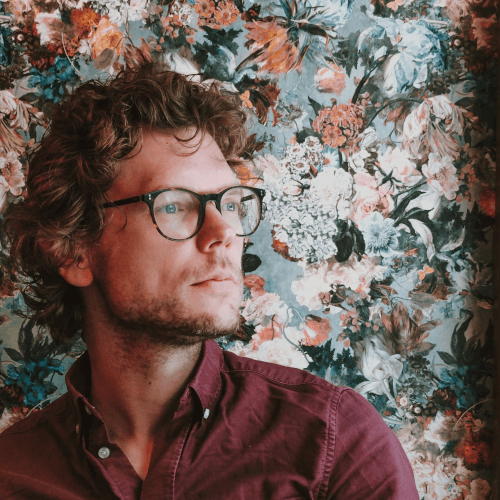
Sebastian Blaes
Postdoctoral Researcher in the Autonomous Learning Group at the Max Planck Institute for Intelligent Systems, Tuebingen.
Cycling, running, trekking, mountaineering enthusiast.

Postdoctoral Researcher in the Autonomous Learning Group at the Max Planck Institute for Intelligent Systems, Tuebingen.
Cycling, running, trekking, mountaineering enthusiast.
Reinforcement Learning for Robotics / Robotics for Sustainable Agriculture
Postdoctoral Researcher
Max-Planck Institute for Intelligent Systems (Autonomous Learning Group / Robust Machine Learning Group)
Nature-Inspired Inductive Biases in Learning Robots
PhD Research
Max-Planck-Institute for Intelligent Systems (Autonomous Learning Group)
Deep Convolutional Networks for Visual Object Recognition: Few-Shot Learning of New Categories
Graduate Research
Frankfurt Institute for Advanced Studies (Burwick Lab)
Attentional Selection and Suppression Mechanism in an Oscillatory Neural Network Model
Graduate Research
Frankfurt Institute for Advanced Studies (Burwick Lab)
Plasma Confinement of the Weibel Type
Undergraduate Research
Goethe University (Institute for Applied Physics)
, Benchmarking Offline Reinforcement Learning on Real-Robot Hardware , International Conference on Learning Representations (ICLR)
, Versatile Skill Control via Self-supervised Adversarial Imitation of Unlabeled Mixed Motions , IEEE International Conference on Robotics and Automation (ICRA)
, Nature-Inspired Inductive Biases in Learning Robots , Universität Tübingen , PhD Thesis
, Learning Agile Skills via Adversarial Imitation of Rough Partial Demonstrations , Conference on Robot Learning (CoRL) , Best Paper Award Finalist
, Curious Exploration via Structured World Models Yields Zero-Shot Object Manipulation , Conference on Neural Information Processing Systems (NeurIPS)
, Risk-Averse Zero-Order Trajectory Optimization , Conference on Robot Learning (CoRL) , *equal contribution
, Extracting Strong Policies for Robotics Tasks from Zero-order Trajectory Optimizers , International Conference on Learning Representations (ICLR) , *equal contribution
, Sample-efficient Cross-Entropy Method for Real-time Planning , Conference on Robot Learning (CoRL)
, Control What You Can: Intrinsically Motivated Task-Planning Agent , Conference on Neural Information Processing Systems (NeurIPS)
, Few-Shot Learning in Deep Networks through Global Prototyping , Neural Networks , 159-172
, Feature Binding in Deep Convolution Networks with Recurrences, Oscillations and Top-Down Modulated Dynamics , European Symposium on Artificial Neural Networks (ESANN)
, Attentional Bias through Oscillatory Coherence between Excitatory Activity and Inhibitory Minima , Neural Computation , 1405-1437
, Electron Density and Plasma Dynamics of a Spherical Theta Pinch , Physics of Plamsas
PhD in Computer Science
Tübingen University / Max-Planck Institute for Intelligent Systems, Tübingen, GER
Coursework:
MSc in Computer Science
Goethe University / Frankfurt Institute for Advanced Studies (FIAS), Frankfurt, GER
Coursework:
MSc in Physics
Goethe University / Frankfurt Institute for Advanced Studies (FIAS), Frankfurt, GER
Coursework:
BSc in Physics
Goethe University / Frankfurt Institute for Advanced Studies (FIAS), Frankfurt, GER
Coursework: